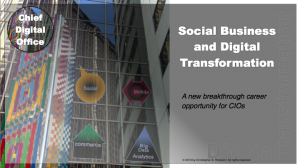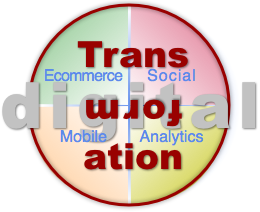 Use Scenarios to Network into Jobs and Contracts reveals a new way to break through when you’re looking for new consulting work or employment for yourself, or you’re fundraising for your startup or nonprofit. As these pages detail, I’ve learned that “breaking through the noise” is easy when you play music. You’ll learn how to do it here. Use Scenarios to Network into Jobs and Contracts reveals a new way to break through when you’re looking for new consulting work or employment for yourself, or you’re fundraising for your startup or nonprofit. As these pages detail, I’ve learned that “breaking through the noise” is easy when you play music. You’ll learn how to do it here.
[…]
 Employee engagement and experiential social media shares my insights into one of the biggest challenges faced by business today—the employee engagement crisis, and how firms can change the game. Fewer than a quarter of employees are engaged, a slightly smaller quarter are “actively disengaged,” and the majority is blasé and punches the clock. Employee engagement and experiential social media shares my insights into one of the biggest challenges faced by business today—the employee engagement crisis, and how firms can change the game. Fewer than a quarter of employees are engaged, a slightly smaller quarter are “actively disengaged,” and the majority is blasé and punches the clock.
If you’d like to watch this post instead of reading it, click the thumbnail button.
[…]
 Why Machines Won’t Displace Human Workers in the Knowledge Economy is a short thought experiment, in the spirit of all Noodles, which was in response to a post in Wired. In Here’s How to Keep the Robots From Stealing Our Jobs, John Hagel posited that a major rationale for the Knowledge Economy firm would be its role as a “knowledge platform” that enabled people to accelerate their learning and productivity. I highly recommend the post, which sparked many intelligent comments. Why Machines Won’t Displace Human Workers in the Knowledge Economy is a short thought experiment, in the spirit of all Noodles, which was in response to a post in Wired. In Here’s How to Keep the Robots From Stealing Our Jobs, John Hagel posited that a major rationale for the Knowledge Economy firm would be its role as a “knowledge platform” that enabled people to accelerate their learning and productivity. I highly recommend the post, which sparked many intelligent comments.
It’s obvious that many people are having difficulties imagining the world toward which we are hurtling, a world in which machines are getting “smarter” and able to “compete” for work roles that humans now do. In writing The Social Channel App, I thought long and hard about the Knowledge Economy and people’s roles in it, and its main thesis is that everything, from states and enterprises to people and products, will be differentiated in the Social Channel and that “humanness” will assume a much more visible importance in the economy.
[…]
 CIO Guide to CDOs and Digital Transformation summarizes a presentation I gave to TechLeaders Association, a Chicago-based CIO group. It will brief you on how digitally empowered B2C and B2B customers are forcing change on enterprises by demanding seamless interactions across digital and analog interfaces, the rise of the Chief Digital Officer and how CIOs can use this disruption to their advantage. Omni-channel will become the new normal in industries in which a leader provides the omni-channel experience and raises the bar. While explaining omni-channel, I asked the room how many had abandoned transactions with ecommerce or mobile sites because they were too difficult to use, and 40% raised their hands. When leaders field their omni-channel experiences, customers will reject laggards en masse. CIOs can use these developments to their advantage, and the CIO Guide to CDOs and Digital Transformation shows how. CIO Guide to CDOs and Digital Transformation summarizes a presentation I gave to TechLeaders Association, a Chicago-based CIO group. It will brief you on how digitally empowered B2C and B2B customers are forcing change on enterprises by demanding seamless interactions across digital and analog interfaces, the rise of the Chief Digital Officer and how CIOs can use this disruption to their advantage. Omni-channel will become the new normal in industries in which a leader provides the omni-channel experience and raises the bar. While explaining omni-channel, I asked the room how many had abandoned transactions with ecommerce or mobile sites because they were too difficult to use, and 40% raised their hands. When leaders field their omni-channel experiences, customers will reject laggards en masse. CIOs can use these developments to their advantage, and the CIO Guide to CDOs and Digital Transformation shows how.
[…]
 Chief digital officers and transformation will go hand in hand as the position and its competencies take shape over the next few years. Historically, commercial, government and nonprofit enterprises, when faced with profound business change or technology disruption, respond by elevating new types of leader to the “C” level. Chief Knowledge Officer, Chief Process Officer, Chief Ecommerce Officer and the like become de rigeur for a few years and fade, either because the new disruption proved less sustainable than anticipated or because the competency became subsumed by a more core function. Chief digital officers and transformation will go hand in hand as the position and its competencies take shape over the next few years. Historically, commercial, government and nonprofit enterprises, when faced with profound business change or technology disruption, respond by elevating new types of leader to the “C” level. Chief Knowledge Officer, Chief Process Officer, Chief Ecommerce Officer and the like become de rigeur for a few years and fade, either because the new disruption proved less sustainable than anticipated or because the competency became subsumed by a more core function.
I predict that the Chief Digital Officer (CDO) will play a vital role at most organizations through 2020, but the organizational role will be fleeting as a standalone. “Digital” will integrate all functions and be the standard eventually, but organizations require intense transformation to get there, so the CDO will play a crucial role. My ongoing analysis of social business adoption indicates that the market for social business transformation will hit an inflection point by 2017, as more advisors and executives see the power and results of digital […]
![Catch Social Media Leaders [Social Business Team Building] case3](http://rollyson.net/wp-content/uploads/2013/04/sbtb3.png) [UPDATED] Catch Social Media Leaders applies to organizations with very conservative cultures—banks, insurers, healthcare, governments, B2B firms, and professional services to name a few—that have sat on the sidelines and now feel nervous because they are so far behind. In 2013, digital marketing and firm executives are thinking about building their internal teams to provide more continuity and scale, so here I’ll show how firms can use strategy and best practices to outperform rivals across the social business life cycle. [UPDATED] Catch Social Media Leaders applies to organizations with very conservative cultures—banks, insurers, healthcare, governments, B2B firms, and professional services to name a few—that have sat on the sidelines and now feel nervous because they are so far behind. In 2013, digital marketing and firm executives are thinking about building their internal teams to provide more continuity and scale, so here I’ll show how firms can use strategy and best practices to outperform rivals across the social business life cycle.
Catch Social Media Leaders is the third of the five-part social business team building series The series describes team building in the context of various scenarios in which firms build social business capability, step by step, while investing wisely. Social Business Strategy Use Cases outlines and compares all five use cases while Social Business Team Building gives general guidance for how to create social business teams as well as recommendations for what characteristics leaders have, so I recommend reading them, too.
[…]

You can create more opportunity with a career mission, especially when you don’t get distracted by traditional career or job search concerns like whether you have a “consulting” or “employment” relationship. Here I’ll share how you can create far more opportunity by changing your assumptions about work, tapping the Social Channel and aligning yourself with the emerging Knowledge Economy. To illustrate the point, I’ll use myself as an example because I’m a veteran of many types of “work arrangements.”
It’s the good news-bad news story of the almost-decade: legacy “work” and “jobs” have permanently gone by the wayside as the primary means for people to be productive in “modern” economies (bad news). However, people can create a higher quality of life by adopting a more flexible approach to work, and organizations are crying out for flexibility (good news).
[…]
Upgrading the Expert Role for the Knowledge Economy shows how knowledge workers can no longer seek refuge in their core expertise, and how to branch out.

“Experts” are regarded as the foremost authorities in their fields, the glib guru versions notwithstanding. An oft quoted maxim shows why: according to Malcolm Gladwell, for one, it takes 10,000 hours [of study, work] for most people to become expert in something.* On a related front, Naveen Jain posits that experts will be less likely to solve today’s toughest problems because their expertise has become a box around them. All those degrees or promotions within the organization have focused their minds but also closed out creativity. While commenting on his post, I realized that redefining the expert would be necessary in the Knowledge Economy, so here I’ll offer some strategies and tactics for how to practice being an “expert” in the 21st century.
Notably, we can take lessons from experts and apply them to specialists, which are arguably less far along on the same vector—and more common.
[…]
 In Recruiting Reinvented, the CEO of Reppify, which advises firms on using social networks to find job candidates, shared several nuggets for candidates, with a glaring omission that I’ll reveal below. Keep in mind that the focus of the interview was on how firms could use social to up their game, so the nuggets went unnoticed, except over here! One of Reppify’s core offerings is advising firms to use social networks to discover and engage candidates, but without setting off any legal land mines. I’m assuming that Reppify, in addition to screening candidates for clients, creates templated workstreams for their clients to improve recruiting while reducing risk. In Recruiting Reinvented, the CEO of Reppify, which advises firms on using social networks to find job candidates, shared several nuggets for candidates, with a glaring omission that I’ll reveal below. Keep in mind that the focus of the interview was on how firms could use social to up their game, so the nuggets went unnoticed, except over here! One of Reppify’s core offerings is advising firms to use social networks to discover and engage candidates, but without setting off any legal land mines. I’m assuming that Reppify, in addition to screening candidates for clients, creates templated workstreams for their clients to improve recruiting while reducing risk.
[…]
 The power of specialization in social networks explains how most executives and knowledge workers are not yet in synch with the emerging Knowledge Economy and its disruption of career assumptions. One of the most powerful career beliefs of the 20th century is especially out of place in the 21st century: generalists are more flexible and employable. Read on for a brief explanation of key Knowledge Economy career trends and specific action steps you can take to expand opportunity for yourself, your colleagues and your family. The power of specialization in social networks explains how most executives and knowledge workers are not yet in synch with the emerging Knowledge Economy and its disruption of career assumptions. One of the most powerful career beliefs of the 20th century is especially out of place in the 21st century: generalists are more flexible and employable. Read on for a brief explanation of key Knowledge Economy career trends and specific action steps you can take to expand opportunity for yourself, your colleagues and your family.
[…]
|
|
 Use Scenarios to Network into Jobs and Contracts reveals a new way to break through when you’re looking for new consulting work or employment for yourself, or you’re fundraising for your startup or nonprofit. As these pages detail, I’ve learned that “breaking through the noise” is easy when you play music. You’ll learn how to do it here.
Use Scenarios to Network into Jobs and Contracts reveals a new way to break through when you’re looking for new consulting work or employment for yourself, or you’re fundraising for your startup or nonprofit. As these pages detail, I’ve learned that “breaking through the noise” is easy when you play music. You’ll learn how to do it here.
 Employee engagement and experiential social media shares my insights into one of the biggest challenges faced by business today—the employee engagement crisis, and how firms can change the game. Fewer than a quarter of employees are engaged, a slightly smaller quarter are “actively disengaged,” and the majority is blasé and punches the clock.
Employee engagement and experiential social media shares my insights into one of the biggest challenges faced by business today—the employee engagement crisis, and how firms can change the game. Fewer than a quarter of employees are engaged, a slightly smaller quarter are “actively disengaged,” and the majority is blasé and punches the clock. Why Machines Won’t Displace Human Workers in the Knowledge Economy is a short thought experiment, in the spirit of all Noodles, which was in response to a post in Wired. In Here’s How to Keep the Robots From Stealing Our Jobs, John Hagel posited that a major rationale for the Knowledge Economy firm would be its role as a “knowledge platform” that enabled people to accelerate their learning and productivity. I highly recommend the post, which sparked many intelligent comments.
Why Machines Won’t Displace Human Workers in the Knowledge Economy is a short thought experiment, in the spirit of all Noodles, which was in response to a post in Wired. In Here’s How to Keep the Robots From Stealing Our Jobs, John Hagel posited that a major rationale for the Knowledge Economy firm would be its role as a “knowledge platform” that enabled people to accelerate their learning and productivity. I highly recommend the post, which sparked many intelligent comments. CIO Guide to CDOs and Digital Transformation summarizes a presentation I gave to TechLeaders Association, a Chicago-based CIO group. It will brief you on how digitally empowered B2C and B2B customers are forcing change on enterprises by demanding seamless interactions across digital and analog interfaces, the rise of the Chief Digital Officer and how CIOs can use this disruption to their advantage. Omni-channel will become the new normal in industries in which a leader provides the omni-channel experience and raises the bar. While explaining omni-channel, I asked the room how many had abandoned transactions with ecommerce or mobile sites because they were too difficult to use, and 40% raised their hands. When leaders field their omni-channel experiences, customers will reject laggards en masse. CIOs can use these developments to their advantage, and the CIO Guide to CDOs and Digital Transformation shows how.
CIO Guide to CDOs and Digital Transformation summarizes a presentation I gave to TechLeaders Association, a Chicago-based CIO group. It will brief you on how digitally empowered B2C and B2B customers are forcing change on enterprises by demanding seamless interactions across digital and analog interfaces, the rise of the Chief Digital Officer and how CIOs can use this disruption to their advantage. Omni-channel will become the new normal in industries in which a leader provides the omni-channel experience and raises the bar. While explaining omni-channel, I asked the room how many had abandoned transactions with ecommerce or mobile sites because they were too difficult to use, and 40% raised their hands. When leaders field their omni-channel experiences, customers will reject laggards en masse. CIOs can use these developments to their advantage, and the CIO Guide to CDOs and Digital Transformation shows how. Chief digital officers and transformation will go hand in hand as the position and its competencies take shape over the next few years. Historically, commercial, government and nonprofit enterprises, when faced with profound business change or technology disruption, respond by elevating new types of leader to the “C” level. Chief Knowledge Officer, Chief Process Officer, Chief Ecommerce Officer and the like become de rigeur for a few years and fade, either because the new disruption proved less sustainable than anticipated or because the competency became subsumed by a more core function.
Chief digital officers and transformation will go hand in hand as the position and its competencies take shape over the next few years. Historically, commercial, government and nonprofit enterprises, when faced with profound business change or technology disruption, respond by elevating new types of leader to the “C” level. Chief Knowledge Officer, Chief Process Officer, Chief Ecommerce Officer and the like become de rigeur for a few years and fade, either because the new disruption proved less sustainable than anticipated or because the competency became subsumed by a more core function.![Catch Social Media Leaders [Social Business Team Building] case3](http://rollyson.net/wp-content/uploads/2013/04/sbtb3.png) [UPDATED] Catch Social Media Leaders applies to organizations with very conservative cultures—banks, insurers, healthcare, governments, B2B firms, and professional services to name a few—that have sat on the sidelines and now feel nervous because they are so far behind. In 2013, digital marketing and firm executives are thinking about building their internal teams to provide more continuity and scale, so here I’ll show how firms can use strategy and best practices to outperform rivals across the social business life cycle.
[UPDATED] Catch Social Media Leaders applies to organizations with very conservative cultures—banks, insurers, healthcare, governments, B2B firms, and professional services to name a few—that have sat on the sidelines and now feel nervous because they are so far behind. In 2013, digital marketing and firm executives are thinking about building their internal teams to provide more continuity and scale, so here I’ll show how firms can use strategy and best practices to outperform rivals across the social business life cycle.
 In Recruiting Reinvented, the CEO of Reppify, which advises firms on using social networks to find job candidates, shared several nuggets for candidates, with a glaring omission that I’ll reveal below. Keep in mind that the focus of the interview was on how firms could use social to up their game, so the nuggets went unnoticed, except over here! One of Reppify’s core offerings is advising firms to use social networks to discover and engage candidates, but without setting off any legal land mines. I’m assuming that Reppify, in addition to screening candidates for clients, creates templated workstreams for their clients to improve recruiting while reducing risk.
In Recruiting Reinvented, the CEO of Reppify, which advises firms on using social networks to find job candidates, shared several nuggets for candidates, with a glaring omission that I’ll reveal below. Keep in mind that the focus of the interview was on how firms could use social to up their game, so the nuggets went unnoticed, except over here! One of Reppify’s core offerings is advising firms to use social networks to discover and engage candidates, but without setting off any legal land mines. I’m assuming that Reppify, in addition to screening candidates for clients, creates templated workstreams for their clients to improve recruiting while reducing risk. The power of specialization in social networks explains how most executives and knowledge workers are not yet in synch with the emerging Knowledge Economy and its disruption of career assumptions. One of the most powerful career beliefs of the 20th century is especially out of place in the 21st century: generalists are more flexible and employable. Read on for a brief explanation of key Knowledge Economy career trends and specific action steps you can take to expand opportunity for yourself, your colleagues and your family.
The power of specialization in social networks explains how most executives and knowledge workers are not yet in synch with the emerging Knowledge Economy and its disruption of career assumptions. One of the most powerful career beliefs of the 20th century is especially out of place in the 21st century: generalists are more flexible and employable. Read on for a brief explanation of key Knowledge Economy career trends and specific action steps you can take to expand opportunity for yourself, your colleagues and your family.